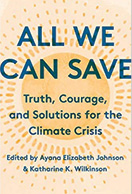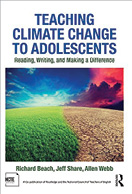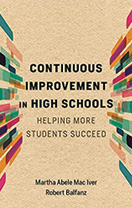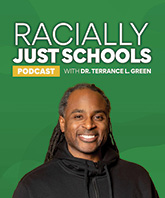Syllabus: April 2022
All We Can Save: Truth, Courage, and Solutions for the Climate Crisis

For educators looking to inform themselves and their school communities about the fight against climate change this Earth Day (April 22), All We Can Save: Truth, Courage, and Solutions for the Climate Crisis (One World, 2021) is a great place to start. Edited by Ayana Elizabeth Johnson, a marine biologist and policy expert, and Katharine K. Wilkinson, an author and teacher, this book consists of chapters written by women who address climate change from various perspectives, ultimately allowing readers to find an entry point into this complicated and often overwhelming topic. In one chapter, for example, a biologist explains the science of the greenhouse effect in a way that would make sense even to someone with little to no scientific knowledge. In other chapters, a politician explains how racial inequality is perpetuated by climate change, a Native American teacher and attorney shares indigenous knowledge about protecting our Earth, and a youth activist explains what there is to learn from the environmental efforts of young people across the globe. Drawings and poems between chapters also enable readers to reflect creatively on their relationship to the environment. Besides explaining the science, All We Can Save provides an overview of environmental fights we’ve already won and the work that is still required of us, and it offers a healthy dose of hope about what is still possible.
Teaching Climate Change to Adolescents: Reading, Writing, and Making a Difference

Too often, it is assumed that climate change education belongs only in the science classroom. In Teaching Climate Change to Adolescents: Reading, Writing, and Making a Difference (Routledge, 2017), Richard Beach, Jeff Share, and Allen Webb make the case that English language arts classrooms play an essential role in the struggle to end the climate crisis. Drawing on both education theory and interviews with teachers across the country, Beach, a professor emeritus of English education at the University of Minnesota, Twin Cities; Share, a teacher and education faculty adviser at the University of California, Los Angeles; and Webb, a professor of English at Western Michigan University, explain how each aspect of the language arts curriculum lends itself to the topic of climate change. In one chapter, the authors explore how a new genre of science fiction—“cli-fi”—can be used to teach students to understand the potential impact of climate change in their lives, as well as envision a radically different future. In another chapter, they explore how to use writing, focusing on persuasive essays, to advocate for sustainable policies and creative, digital media projects to document the human impact on the environment. This text is a valuable resource for school leaders to share with language arts teachers educating their students about climate change.
Continuous Improvement in High Schools: Helping More Students Succeed

In Continuous Improvement in High Schools: Helping More Students Succeed (Harvard Education Press, 2021), Martha Abele Mac Iver and Robert Balfanz from the School of Education at Johns Hopkins University, draw on what they have learned over the past 20 years in working to improve high school graduation rates and postsecondary readiness. Organized around improvement science, their book offers a continuous improvement framework to analyze and develop interventions for educational problems. This approach calls for identifying a specific problem, examining the root causes, analyzing the systems that contribute to the problem, testing an intervention, and building a network with others working to address similar challenges. This book unpacks the framework of improvement science as an intervention tool and provides insights from tested interventions for many challenges facing high school leaders, including preventing ninth-grade course failure, engaging families, increasing students’ connectedness to school, and transforming teacher practice to encourage student motivation.
“Racially Just Schools” Podcast

In “Racially Just Schools,” Dr. Terrance L. Green, an associate professor at the University of Texas at Austin and a former high school science teacher, speaks directly to the role of school leaders in creating a school climate that is humanizing, culturally responsive, and academically rigorous for students of color. In each episode, he delves deeply into one topic through candid conversation with leaders in the education field. For example, in #10: “Why We Need a Hard Re-Set in Education,” Green interviews Gloria Ladson Billings, emerita professor in the School of Education at the University of Wisconsin-Madison and creator of the term “culturally relevant pedagogy,” who explains why we need to reimagine how schools are run in the service of equity. Other episodes, such as #4: “How to Practice Culturally Responsive School Leadership,” are geared specifically toward school leaders. In that episode, Green interviews Muhammad Khalifa, a professor of educational administration and the executive director of urban and rural initiatives at The Ohio State University, about what it takes to engage in culturally responsive school leadership. They also discuss specific ideas for engaging with families, as well as structures to provide teachers with the time and resources necessary to build relationships with the communities they serve.
